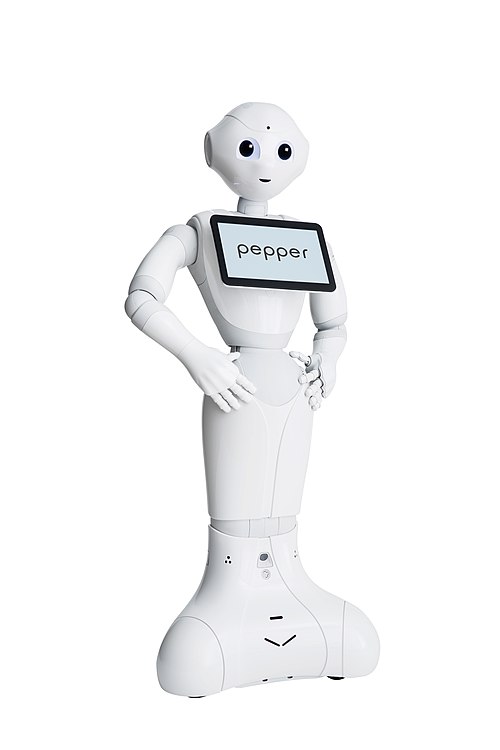
Pepper (SoftBank Robotics)
| Feature | Details |
|---|---|
| Robot Name | Pepper |
| Company | SoftBank Robotics | Japan |
| Height | 120 cm (4 ft) |
| Weight | 28 kg (62 lbs) |
| Walking Speed | 3 km/h (1.9 mph) - wheeled base |
| Battery Life | 12 hours |
| Key Capabilities | 19 DoF, emotional recognition, 10.1" chest tablet, multi-language support |
| Primary Applications | Customer service, healthcare, education, hospitality |
| Availability | Commercial (established platform) |
| Notable Features | Emotional robot design, omnidirectional wheels, extensive sensor suite |
Note: Details may not be current or accurate.
About Pepper
Pepper represents one of the pioneering achievements in social robotics, designed specifically to create meaningful connections with humans through advanced emotion recognition and natural interaction capabilities. Standing at 120 cm (4 feet) tall and weighing 28 kg, this semi-humanoid robot was engineered with a friendly, approachable design featuring expressive eyes, fluid movements, and a distinctive tablet display on its chest. Pepper's breakthrough technology lies in its sophisticated emotion engine that analyzes facial expressions, voice tones, and conversational context to understand and respond appropriately to human emotions, making it uniquely capable of providing personalized interactions. The robot operates with 20 degrees of freedom, enabling natural gestures and movements, while its advanced sensor array includes HD cameras, 3D depth sensors, microphones, and touch sensors for comprehensive environmental awareness. Despite production being paused in 2021 due to market challenges, Pepper continues to serve in educational institutions, research facilities, and some commercial environments where its ability to engage students in STEM learning, assist elderly individuals, and provide customer service demonstrates the practical potential of emotionally intelligent robotics. With ongoing integration of modern AI technologies like ChatGPT, Pepper's conversational abilities have been significantly enhanced, positioning it as a valuable platform for exploring the future of human-robot collaboration in healthcare, education, and social support applications.